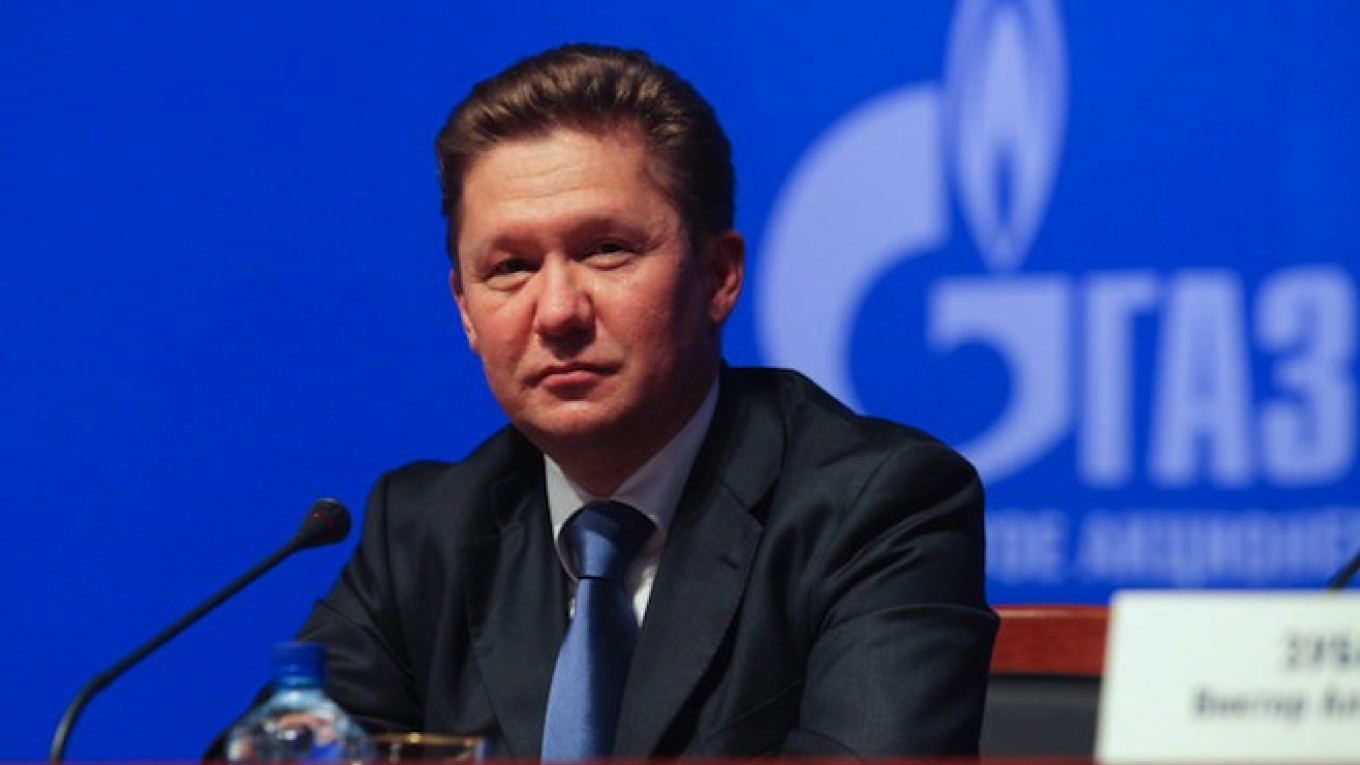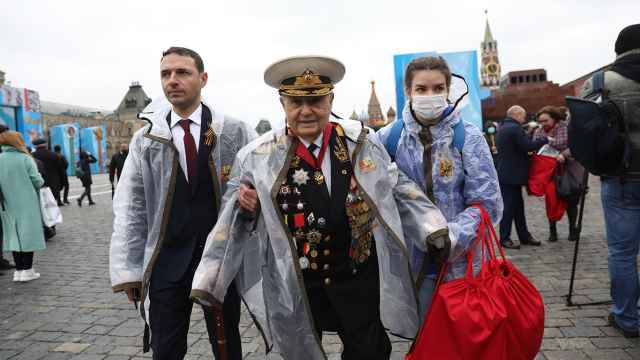Russia's highest-paid executive last year with earnings of $27 million was Alexei Miller, the head of natural gas producer Gazprom, according to a ranking published by the Russian edition of Forbes magazine on Thursday that showed a sharp fall in the incomes of many of Russia's top corporate bosses.
Miller, 53, bucked the trend. A longtime associate of President Vladimir Putin who was appointed to run Gazprom — a state-controlled company that accounts for some 8 percent of Russia's economic output — in 2001, he increased his earnings last year by $2 million from the year before, according to Forbes.
Runner up was Andrei Kostin, 59, the head of state banking group VTB, who earned $21 million last year, down from $37 million in 2013, according to Forbes.
Igor Sechin, the 55-year-old head of the government-owned oil firm Rosneft and another old ally of Putin, rounded out the top three with income of $17.5 million, Forbes said. Legal action by Sechin prevented Forbes from publishing his income in 2013, but the magazine said his earnings had fallen last year.
Rosneft denied the $17.5 million figure on Thursday, though it gave no number of its own.
In total, the 25 figures on the Forbes list, which included Sberbank chief German Gref (who earned $13.5 million last year) and former head of Russian Railways, Vladimir Yakunin ($11 million), collected $242 million in 2014, a decline of 17 percent from the previous year.
That was likely due to last year’s economic turmoil: 2014 was marked by Moscow's annexation of Crimea from Ukraine and resultant economic sanctions on Russia; a steep fall in the value of the ruble and of oil, the country's most important export; and the start of a deep economic slump that has worsened this year.
A Message from The Moscow Times:
Dear readers,
We are facing unprecedented challenges. Russia's Prosecutor General's Office has designated The Moscow Times as an "undesirable" organization, criminalizing our work and putting our staff at risk of prosecution. This follows our earlier unjust labeling as a "foreign agent."
These actions are direct attempts to silence independent journalism in Russia. The authorities claim our work "discredits the decisions of the Russian leadership." We see things differently: we strive to provide accurate, unbiased reporting on Russia.
We, the journalists of The Moscow Times, refuse to be silenced. But to continue our work, we need your help.
Your support, no matter how small, makes a world of difference. If you can, please support us monthly starting from just $2. It's quick to set up, and every contribution makes a significant impact.
By supporting The Moscow Times, you're defending open, independent journalism in the face of repression. Thank you for standing with us.
Remind me later.






